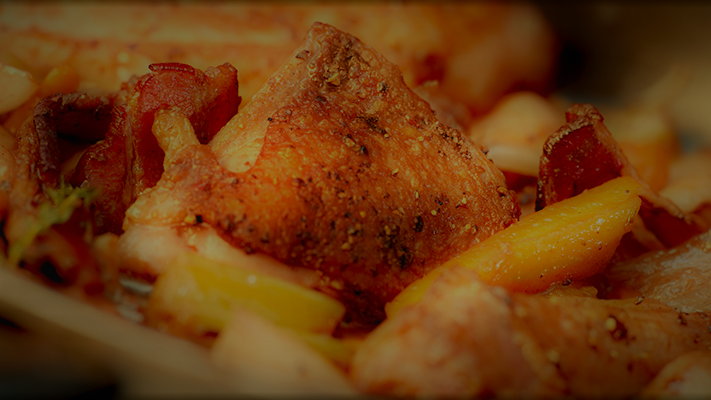
BULK UP
Foods to eat
Including nutrient-dense, whole foods in your diet ensures that you get adequate vitamins and minerals, healthy fats, and quality protein.
Here are examples of foods that should comprise the majority of your diet:
| Fruits: | apples, avocado, bananas, berries, grapes, kiwi, oranges, pears, pineapple, and pomegranate. |
| Vegetables: | asparagus, arugula, beets, broccoli, carrots, collards, cucumber, kale, mushrooms, and peppers. |
| Starchy vegetables: | arrowroot, jicama, peas, potatoes, rutabaga, and yam. |
| Grains: | breads, cereals, corn, oatmeal, popcorn, quinoa, and rice. |
| Seafood: | cod, crab, lobster, salmon, scallops, shrimp, tilapia, and tuna. |
| Meats, poultry, and eggs: | ground beef, eye of round steak, pork tenderloin, skinless chicken, sirloin steak, turkey, and whole eggs. |
| Beverages without added sugar: | coffee, diet soda, unsweetened tea, and water. |
Foods to avoid
While a bulking diet allows for most foods, some should be limited because they contain very few nutrients. These include:
| Alcohol | Alcohol interferes with your body's ability to build muscle, particularly when drunk in excess. |
| Added sugars | Added sugar, which is common in candy, desserts, and sugar-sweetened beverages, is linked to several negative health effects when eaten in excess. |
| Fried foods | Regularly eating fried foods may increase your risk of heart disease and type 2 diabetes. Fried foods include fried chicken, onion rings, cheese curds, and fish and chips. |
What is a Bulk-up Diet?
Bulking is a term commonly thrown around by bodybuilders.
It generally refers to a progressive increase in the number of calories consumed beyond your body's needs in combination with intense weight training.
Whereas some people claim that bulking is unhealthy, others insist that it's a safe and effective method for gaining muscle mass.
Supplements to Consider
Supplement use is highly prevalent among bodybuilders.
Bodybuilders take supplements for various reasons, including to boost overall health, immune function, and exercise performance.
Still, despite the hundreds of supplements marketed toward bodybuilders, only a handful have strong evidence to support their use. Those backed by studies include:
| Caffeine | This ubiquitous stimulant decreases sensations of pain and increases focus, allowing you to exercise longer and harder. It’s commonly added to pre-workout supplements. |
| Creatine | Creatine provides your muscles with additional energy to work harder and lift more. Studies suggest that creatine monohydrate may be the most effective form. |
| Protein powder | While it may not directly affect performance, animal- or plant-based protein powders offer an easy and convenient way to meet your daily protein targets. |
What is Dirty Bulking?
In general, the term bulking refers to a controlled phase of being in a calculated calorie surplus and combining it with sufficient resistance training to boost muscle and strength gains.
A calorie surplus involves consuming more calories than you burn, which can lead to weight gain in the form of muscle or fat.
Dirty bulking takes this a step further and can be defined as a period of unrelenting weight gain by any means necessary to promote muscle and strength gains. It’s usually paired with high-intensity resistance exercise to complement these adaptations.
The approach may be utilized by off-season bodybuilders, weightlifters, powerlifters, or the average gym-goer looking to pack on some size.
When following a dirty bulk, no foods are off-limits. The goal is to eat as much as tolerable to increase body mass.
Often, high calorie shakes and mass gain powders are utilized during a dirty bulk to promote a calorie surplus and subsequent muscle gains.
While this may work for some, others may find that the negative side effects outweigh the benefits.
Foods to eat
> high protein foods, such as red meat, fish, poultry, dairy, tofu, tempeh
> protein powders
> high-calorie mass gain powders
> breakfast cereals
> cereal bars
> fruits and vegetables
> high carb dishes
> baked goods
> pizza
> pasta
> nuts and nut butters
> cheeses
> whole eggs
> avocados
> fast food
Foods to avoid
> low calorie, diet, or sugar-free foods
> foods that may cause negative health effects when eaten in large quantities, such as liver, Brazil nuts, and mercury-containing fish
Sample menu
(click the button to view menu)
